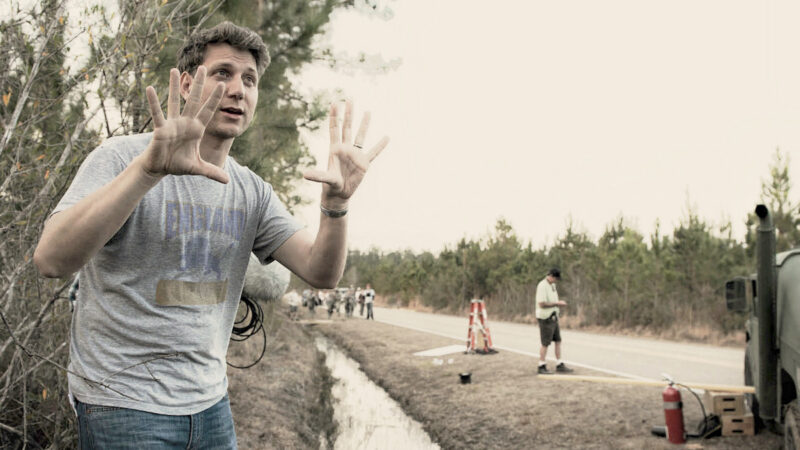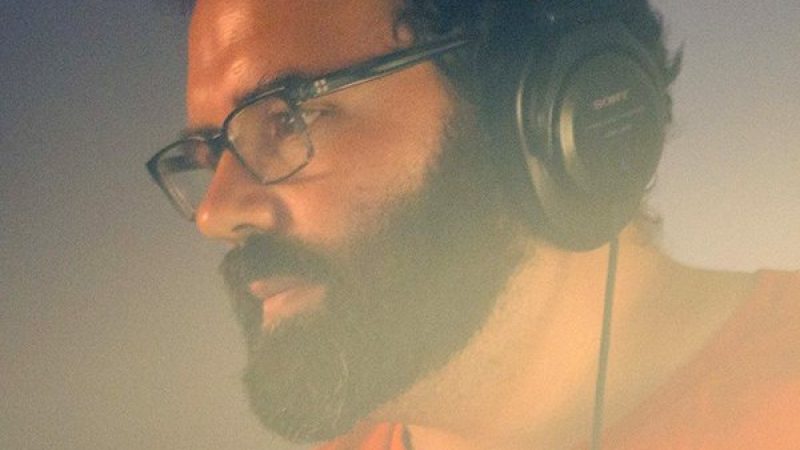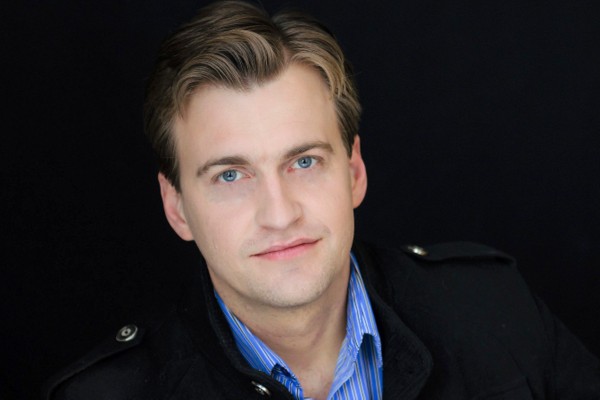
Peter Mastne started acting and performing as a kid; doing school plays, sketches and he was in a touring dance troupe growing up. “I think more than anything though, I discovered my penchant for performing cutting up in class. I was in a contest with the teacher for the attention of the students, although I think mostly all I got was trouble.” says Peter Mastne
Peter did have this one Drama teacher, Trevor, who taught him a lot about acting, especially comedy. He and would put on sketches for the school and they always got a ton of laughs.
Peter had a small part in a Thai TV Show when he was 17. Peter says, “I don’t think I really took acting seriously until I moved to Chicago a few years back. After taking Acting and Improv courses at Second City, I started auditioning right away.”
Peter Mastne booked a few short films early on and he thinks that gave him the confidence to pursue this full-time. He has done some work on Independent films, most of which are still in post-production and he was involved in a ‘Pilot’ which is now on Amazon. He has been able to book roles on TV shows like American Greed, Mysteries at the Museum and Pandora’s Box.
Here it is! The 1st official poster for @imagothemovie17. Writing, producing, directing & acting in this film was the highlight of my year. pic.twitter.com/PmNZBQDnot
— Peter Mastne (@PeterMastne) October 23, 2017
indieactivity: Did you study what you do?
Peter: Absolutely. Beyond my education at Second City which is famous for being where Steve Carell and Tina Fey studied, I’ve worked a lot with a private acting coach. But I think it’s interesting that we think of studying as being an official program or mentorship, which is part of it. But so much of human behavior is learned outside the classroom.
I try to constantly observe the world around me, people’s behaviors, world views, and interactions. I think that’s so crucial because you can’t really separate acting and life. The real transcendent performances that we’ve seen really bring us into the most profoundly raw reality of what it means to be human.
indieactivity: What is your filmmaking process?
Peter: Acting and filmmaking seem like different entities but they’re both part of the story-telling process. And for thousands of years, story-telling is how we’ve communicated, how we passed on culture, values and ideas. And when you strip away all the fluff, we’re telling stories. As a filmmaker, it starts with writing. When I was writing Imago, I went through 10 drafts before I felt it was ready for the screen.
Then as an actor, you take those words on the page and try to communicate it with all the tools at your disposal to hopefully give a performance that’s not only believable but impactful.
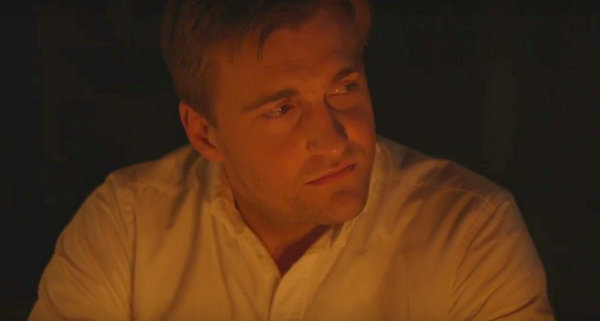
I know a lot of actors who swear by a certain technique, whether that’s Meisner or Chekov or Stella Adler. And those are all fantastic techniques that I’ve studied but I don’t think I have one that I use exclusively. Everyone is different, and I think you find what resonates with you, whatever that is. Acting is a craft and I wonder if sometimes we lose sight of that under the glare of the spotlight.
I have a lot of respect for British and Australian actors because I think their culture, especially the Brits, they treat acting like a craft. They work incredibly hard to bring authenticity to their performances and that’s why they’re so good.
indieactivity: What work have you produced?
Peter: Imago is the only film that I’ve produced to-date. I wrote it and then produced and directed it. Then I acted in it. It’s a story about two people who are confronted with the realities of modern-day human trafficking and their response to it. I really wanted to tell a story that way, looking at a massive issue like trafficking not removed from it like an audience member, but from the lens of people being confronted with it as they struggle through life.
Almost all of the actors and crew were local and committed to telling this story, so it was a real team effort. For me personally, it was by far the most difficult but rewarding thing I’ve ever done, and it would not have been possible without the 50+ people who worked to bring it to life. We spent 5 months of 2017 shooting this movie in Illinois and Wisconsin and we’re hoping for a 2018 Spring release.
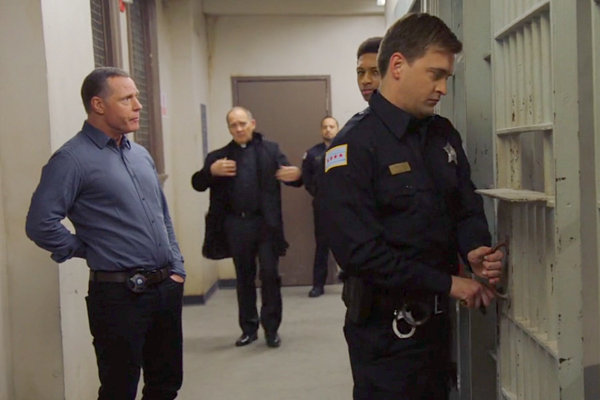
indieactivity: Do you take courses to improve your craft?
Peter: Always. For continuing education I’ve taken Aaron Sorkin’s course on writing and Ron Howard’s online special on Directing. I also subscribe to 3 or 4 podcasts on filmmaking and acting. .
indieactivity: How do you combine acting, producing and writing?
Peter: If only I knew the answer to that question, ha. I think don’t think anyone can do all 3 without a great team. It takes a village to make a movie and when we made Imago, I relied on the expertise of so many people who are way more talented and knowledgeable than I am.
David Hakola and Ric Morgan helped with the producing side, my crew was phenomenal, and my acting coach helped me slog through the script until it was screen-worthy. And the actors gave 100% through a lot of long days and overnights to put the story on screen.
indieactivity: How did you get into the filmmaking business?
Peter: In today’s climate, the competition for actors is tougher than ever. To stand-out, you need to be able to produce or write your own work. And you can’t just do it because it’s a pathway to the industry. You have to do it because you really have a story you want to tell.
Someone once told me, “No one gives a shit about you. They MIGHT give a shit about what you have to say.” So I thought to myself, if I’m going to write a story, I want it to be a story that goes beyond entertainment. I want to highlight an issue that’s meaningful to me, so I wrote Imago.
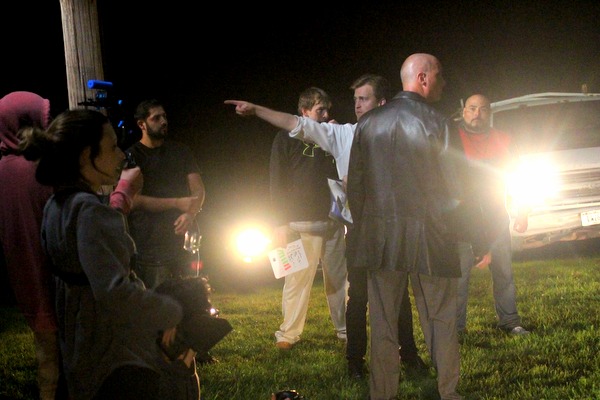
indieactivity: How do you turn an idea into a screenplay?
Peter: You know, I really wish I knew. Honestly. I think you can study the rules of screen-writing through stories and books but I don’t think there’s any substitute for trial and error. I think you have to be wiling to sit down and write a lot of shitty drafts and work on them over and over. Then you gotta listen to feedback from people you trust and go back to the drawing table and be willing to go through that process 10 more times. It’s like anything. Skill to do comes with doing.
indieactivity: Explain your writing process?
Peter: Usually ideas come to me while I’m driving and then I’ll make little notes in my phone. As far as the writing process, I think I just put a vomit draft on paper and then walk away from it. Then I’ll come back later and re-write it. And I do that over and over. That’s about as close to a “process” as I get. I’m sure my process will evolve over time but what I find interesting is where the idea itself comes from.
The ancient Romans believed that a genius was an entity that lived in the walls of an artist’s studio. We think of a genius as an individual but they, along with the Greeks, saw it as a divine, magical sort of entity that came to us randomly. I’ve always been fascinated by that because sometimes ideas just come to me out of the blue. I’ll be sitting in traffic wondering which sandwich I want for lunch and an idea will come to me. Of course, so much of art that we create is a combination of our experiences and creative influences, but I do think there’s room for other random forms of creative stimuli.

indieactivity: What writing tip can you offer?
Peter: Writing is so difficult and here’s why. On one hand, you have to be courageous and true to your voice. You’ve got be honest and raw and real. The last thing you ever want to do is pander. But at the same time, you have to listen to your audience and find out what resonates with them. It’s a fine line to walk and I think I’m still figuring out just how to do that.
I think if I was going to give anyone advice it would be to only write if you have something to say. Don’t ask yourself, what kind of movies or books do people like. Ask yourself ‘What is something that I have to express?’ I think that’s the only way to keep yourself honest. But I’m still very new to this, so I’m not sure anyone should be taking my advice, lol.
indieactivity: What is it like working on the Hollywood system?
Peter: Hollywood can be a tough place to work but I think it’s crucial to have a strong sense of identity. Know who you are and what you stand for. Otherwise it’s easy to get dragged into becoming a caricature, trying to fit in with what other people want you to be. It’s a struggle, dealing with expectations but have convictions and stick with them. The world doesn’t need more puppets trying to sell an ideology they don’t believe in. It needs artists, storytellers, dreamers. People who reimagine the world as it could be and bring that to their storytelling.
indieactivity: What would you change about the film business?
Peter: Wow, that’s a tough one. I’d love to see more of a platform for Independent story-telling. It’s very hard to get a distribution deal for your film if you don’t have a name attached to it and on a certain level you can understand that names traditionally sell movies. But I think audiences are hungry for more original content and I wish there were more platforms for indie films to get sold and distributed to wider audiences. We’re starting to see more of that with the rise of digital programming and VOD options, but I’d love to push the envelope even further.
indieactivity: What do you want to be remembered for?
Peter: Man, the legacy question. It’s funny you know, the harder you try to leave a certain legacy, the harder it becomes to actually do. I think it’s better to leave everything on the table, don’t hold back. Be true to yourself and your voice and let the world decide what your legacy was. Not that the world is a great judge. Some of the greatest men that have ever lived still haven’t been recognized to this day. And some of the shittiest humans have public holidays named for them. I don’t think you can really care what the world thinks. Leave your heart on the floor and let the world dance.
Follow Peter Mastne on Social Media
IMDb
Facebook
Twitter
Instagram
Vimeo
The Key Facts Behind How Jeff Nichols Made The Indie Hit MUD
Jeff Nichols gives himself directorial challenges to master on every project.
In Conversation with Michael Oblowitz Director of Confidential Informant
Confidential Informant stars Mel Gibson, Dominic Purcell, and Kate Bosworth

